Appalachian Trail-themed art work


FALLS VILLAGE — A visitor to the Center on Main will notice some sort of art endeavor underway in the vestibule.
The visitor is welcome to contribute.
The ongoing community artwork, called “Sidewalk Studio,” is a collaboration between the Center and the Off the Trail Cafe. It has an appropriate Appalachian Trail theme.
Britta Sallik is the Community Connections Manager at the Center and the art project is indicative of the direction she sees for the organization.
She said the Center is working on partnering with businesses and organizations.
“We’re trying to multiply the impact,” she said.
In the community art project, “We were looking for a way to have a presence but have it unstaffed.”
Sallik works between six and 10 hours per week.
“So we partnered with the cafe,” which is where the finished work will be displayed.
In collaboration with the Recreation Commission, Saturday, Aug. 23 is Box Fort Day, from 10 a.m. to 4 p.m.
Box Fort Day is free and no registration is required. No need to bring boxes or other supplies, either. Sallik said they are well stocked and ready to go.
Sallik came on board about three months ago. She is also a freelance grant writer specializing in farming and food issues, and was once a livestock manager.
She said a major goal is for people to realize the Center on Main is more than the home of the Falls Village Children’s Theater.
The Center hosts taekwondo Mondays and Wednesdays from 5 p.m. to 7 p.m. and Sunday from 10 a.m. to 11 a.m.
There are ongoing drum lessons and a drum circle.
And on the first Saturday the Center presents the Twelve Moons Coffee House, with folk music (broadly defined) with open mic and a featured performer.
“It’s Falls Village’s living room,” said Sallik.
LAKEVILLE — Barbara Meyers DelPrete, 84, passed away Tuesday, September 30, 2025.
A Funeral Mass will be celebrated Saturday, October 4, 2025, at 11:00a.m. at St. Mary’s Church, 76 Sharon Rd., Lakeville.
A complete obituary will appear in next week’s Lakeville Journal.
To offer an online condolence, please visit ryanfhct.com.
Get to know your candidates ahead of the 2025 municipal election. In Sharon, Casey Flanagan (D) is running unopposed for his second term as first selectman. There are two incumbent candidates for selectman: Lynn Kearcher (D) and John Brett (U). All three will be seated on the Board of Selectmen. Below, each candidate offered information about themselves and their goals for the town.
Election Day is Nov. 4.
Early voting begins Oct. 20.
Sharon’s polling station will be at Town Hall, 63 Main Street.
Voting tabulators will be used. Absentee ballots are available from the Town Clerk. Absentee ballots can be placed in the ballot box outside Town Hall and will be counted at the polls.
Selectmen in Sharon are elected to two-year terms. They are seated on the board two weeks after Election Day. The first selectman’s salary is budgeted at $84,821 while the other two selectmen are paid $6,221 each.
As unopposed incumbents, Casey Flanagan, Lynn Kearcher and John Brett will be re-elected to serve on the Board of Selectmen through 2027.
At the heart of Connecticut’s municipal governance schema is the quintessentially New England selectboard, composed of the first selectman who administers day-to-day governance in town, and is assisted by two other selectmen. The Board of Selectmen is responsible for appointing various positions and roles in town commissions and for hiring and firing staff, as well as initiating and instituting town ordinances via Connecticut’s municipal democratic format, the Town Meeting. All selectmen in the Northwest Corner are allocated salaries from the town budget.
In other parts of Connecticut, some towns have begun the shift to a more modern leadership system. Winchester, for example, has adopted a “Council-Manager” form of governance. In this system, a non-partisan town manager was appointed to serve as the Chief Executive Officer of the town, supervising department heads and town staff, and the Board of Selectmen acts as the legislative body.
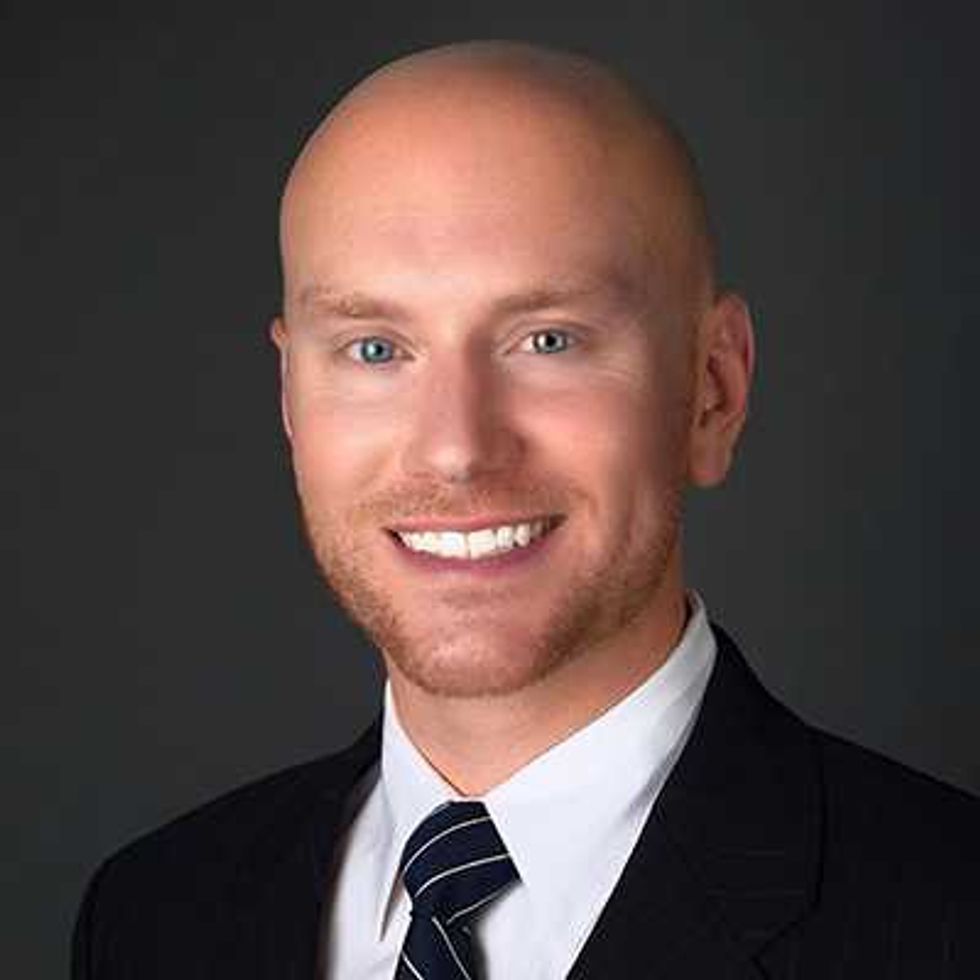
Democratic Nominee for First Selectman
Candidate profile
I am a fourth generation Sharon resident.My wife, Meghan, and I are raising our 12-year-old son Jack here and like many families, we care deeply about the future of Sharon. Professionally, I managed the grounds and maintenance at the Weatherstone Estate for designer Carolyn Roehm, where I learned the value of hard work and attention to detail. I also hold a bachelors degree in finance and economics, which I have put to use while serving on the Board of Selectmen and Board of Finance.
Why are you running for first selectman?
I am running for re-election because I believe our town deserves a leader who is hardworking, dedicated and experienced. I believe in the power of local government to make a real difference in people’s lives. I am running because I care deeply about this community, and I want to make sure every resident feels heard, valued and respected.
What issues deserve the most attention?
We need to invest in modern, resilient infrastructure that supports our residents- from safer roads and bridges to updated facilities. I will continue to prioritize upgrades that serve us today and will withstand the test of time.
How would you improve the town?
With a decade of experience in local government, I understand how to get things done. I am running for re-election to continue the work we’ve started. I will focus on identifying problems and working with my fellow selectmen, town employees and dedicated volunteers to find practical, lasting solutions — all while keeping Sharon a place we’re proud to call home.

Unaffiliated Candidate for Selectman
Candidate profile:
I am running for a second term; the first term has served as hands on experience. I am involved in several local community organizations; Sharon Audubon, The Little Guild, and Artgarage among others. I am a hospice volunteer and I give time to the Sharon Land Trust as a trail volunteer. I am involved as well in the local music and art scene, especially my involvement in Artgarage. Finally, I have lived in Sharon for about 13 years.
Why are you running for selectman?
Having served a term in office, I wish to run for a second term. I’ve spent the last two years learning as much as I can about the workings of the town meeting form of municipal government. Paying close attention to the various committees and commissions and the processes they engage in has been revelatory and fascinating. My experience from the business world along with my more recent various non-profit organization involvement provides me an opportunity to continue to be of service to the town
What issues deserve the most attention?
I think the single biggest issue for our town (region, state and nation too) is accessible and affordable housing. The issue belies deteriorating demographics that our region is experiencing. Future development can be purposeful and mindful while retaining the natural beauty that is the hallmark of where we live. Another issue that deserves attention is traffic safety in our village and town. As our population and traffic issues grow, we need to address this proactively.
How would you improve the town?
After serving my first term, I am in constant awe of the many people that serve in positions for the town and/or various boards and commissions which guide the town’s management. The best single way to improve the town would be to find, develop and enlist new and existing local residents to serve the town in some capacity. As selectman in Sharon, people often come up to me with either a complaint, a request or a suggestion. I almost always respond with a statement: the people who show up, decide
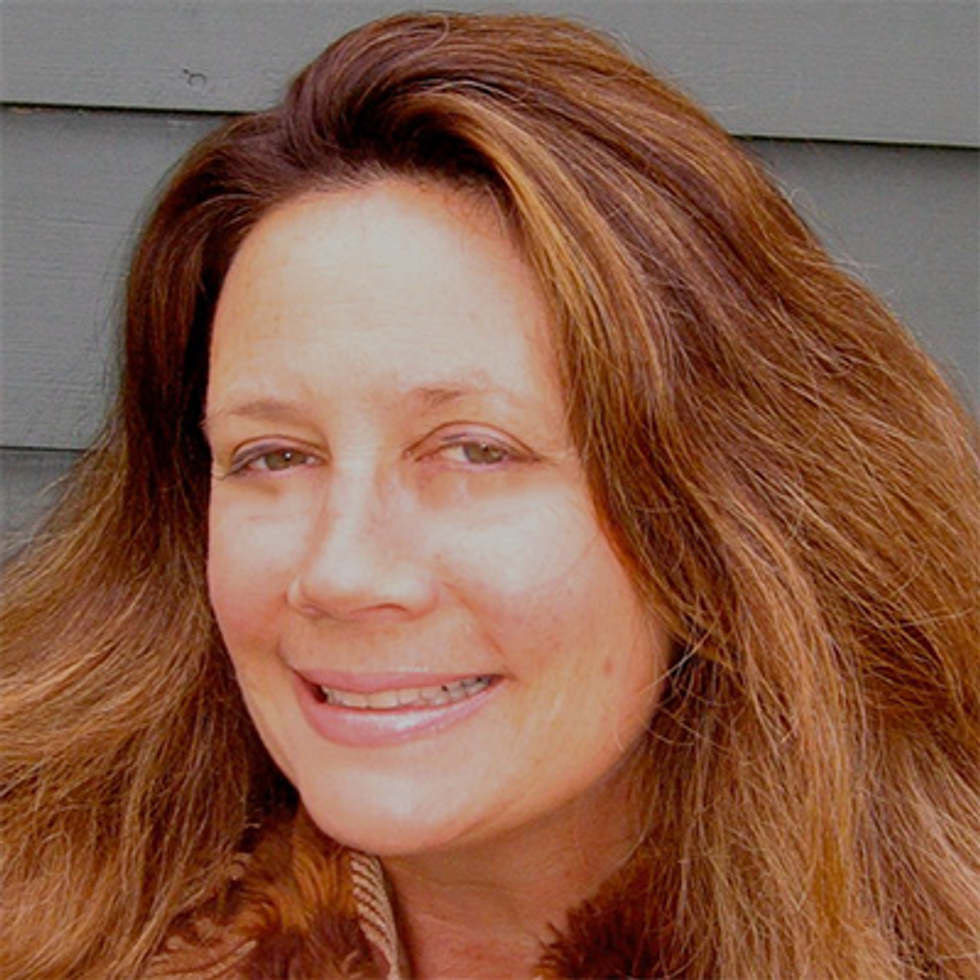
Democratic Nominee for Selectman
Candidate profile:
I was born and raised in Sharon. My parents purchased The Woodland Restaurant in the 50’s and we lived in Lakeville before moving to Sharon. I attended Sharon Center and HVRHS then moved to San Francisco where I attended college and was employed as a Gallery Assistant for Vorpal Gallery.I moved to New York City in 1980 working as an editor for magazines. In 1987 we purchased a home in Sharon. Locally, I had the honor to work for several years for the artist Jasper Johns.
Why are you running for selectman?
It took me two years to understand how a municipality functions. I would like to try another two believing that we as a team of Selectmen can accomplish a great deal. I must give credit to our knowledgeable Town Hall employees, road crew and Town volunteers whom I rely on and who make my job easier.I continue to be astonished at what they know, and what they willingly teach me.Government is a collaborative effort, we don’t always agree, but I believe we are all working for the common good.
What issues deserve the most attention?
Affordable housing, Mudge Pond, speeding/ traffic, keeping our school vibrant. Maintaining the rural nature of Sharon which demands thoughtful planning. Keeping our Green historic, beautiful and uncluttered.It is the face of Sharon, and we are fortunate to have a Committee and Commission who overlook the Green. Engaging the community to volunteer. Traditionally, volunteers have made the most significant impacts in Sharon; we need our residents to help us.
How would you improve the town?
This question stymied me two years ago and does so again. I think it’s the verb “improve” that bothers me, as it implies a slightly negative connotation. The running of a municipality is fluid; our First Selectman is the governing force and he deals with the day to day and long-term projects. We collectively work on issues within the Town, and I like to think “improvement” comes with thoughtful consideration of everything that comes before the Board, and following through on issues.
Get to know your candidates ahead of the 2025 municipal election. In Kent, Eric Epstein (D) is running unopposed for first selectman. There are two candidates for selectman: incumbent Lynn Mellis Worthington (D) and Lynn Harrington (R). All three will be seated on the Board of Selectmen. Below, each candidate offered information about themselves and their goals for the town.
Election Day is Nov. 4.
Early voting begins Oct. 20.
Kent’s polling station will be at Town Hall, 41 Kent Green Blvd.
Voting tabulators will be used. Absentee ballots are available from the Town Clerk. Absentee ballots can be placed in the ballot box outside Town Hall and will be counted at the polls.
Selectmen in Kent are elected to two-year terms. They are seated on the board two weeks after Election Day. The first selectman’s salary is budgeted at $83,647 while the other two selectmen are paid $6,051 each.
As unopposed candidates, Eric Epstein, Lynn Mellis Worthington and Lynn Harrington will be re-elected to serve on the Board of Selectmen through 2027.
At the heart of Connecticut’s municipal governance schema is the quintessentially New England selectboard, composed of the first selectman who administers day-to-day governance in town, and is assisted by two other selectmen. The Board of Selectmen is responsible for appointing various positions and roles in town commissions and for hiring and firing staff, as well as initiating and instituting town ordinances via Connecticut’s municipal democratic format, the Town Meeting. All selectmen in the Northwest Corner are allocated salaries from the town budget.
In other parts of Connecticut, some towns have begun the shift to a more modern leadership system. Winchester, for example, has adopted a “Council-Manager” form of governance. In this system, a non-partisan town manager was appointed to serve as the Chief Executive Officer of the town, supervising department heads and town staff, and the Board of Selectmen acts as the legislative body.

Democratic Nominee for First Selectman
Candidate profile:
Kent has always been home. I was born and raised here, I went to local schools, began my career here, and now my wife, MaryEllen, and I are raising our two children, Ella (11) and Even (8), in the same community. They attend Kent Center School just like I did. I’ve proudly served in the Kent Volunteer Fire Department for over 30 years, including 13 as Chief. That service has deepened my commitment to Kent and our community.
Why are you running for selectman?
I care deeply about this community and believe in its potential. We face real challenges, and I want to bring thoughtful, transparent leadership that puts people first to the task of meeting those challenges. I’ll work to keep Kent affordable, protect what makes it special, and ensure our town remains a place where everyone can thrive - now and for future generations.
What issues deserve the most attention?
Improving road and bridge infrastructure, expanding affordable housing, supporting all-age recreation, increasing school enrolment, enhancing emergency services, and driving economic development are key priorities. These areas directly impact quality of life, safety, and long-term prosperity. Addressing them requires careful planning, community input, and a strong commitment to fiscal prudence and responsible investment.
How would you improve the town?
To improve our town, I would listen closely to residents’ concerns, learn from their experiences, and engage in open, respectful dialogue. By building strong community connections and understanding local needs, I can help create thoughtful, inclusive solutions. I will take action with integrity and transparency, always keeping the best interests of our wonderful town and its people at heart. Together, we can shape a brighter future.
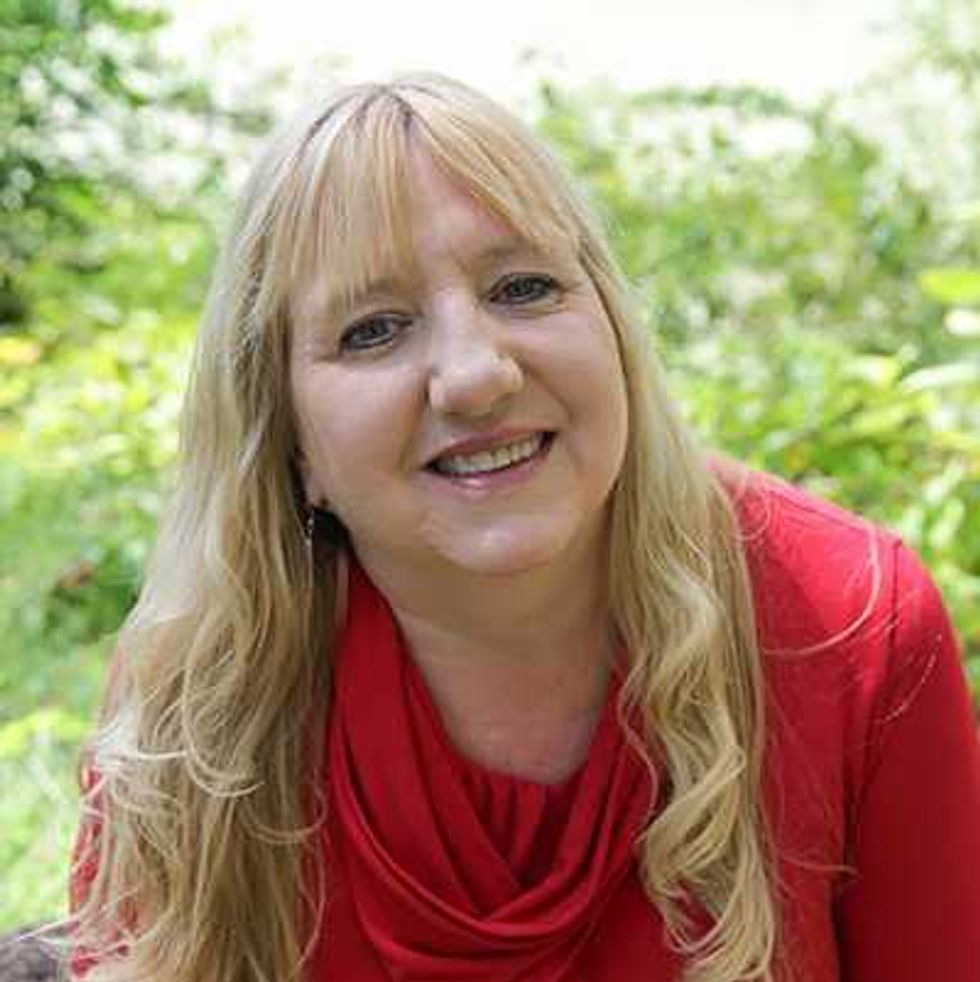
Republican Nominee for Selectman
Candidate profile:
I am a loyal 40-year resident of Kent having grown up in New Milford. I have been a bookkeeper for the last 30 years and am a former owner of the Bull’s Bridge Country Store. My husband and I currently own a small business in town. I am a former longtime member of the Parks and Recreation Commission and have volunteered for many organizations in Town including the KCS PTO and Boy Scouts. I recently joined our local CERT team.
Why are you running for selectman?
I love the rural character of Kent and its small-town feel. My husband and I have raised our two sons here and want them to be able to continue to live here. Ensuring others can do the same by keeping Kent rural and affordable for families and small businesses to thrive will be my main goal as Selectman. I have been active in the community for many years so I have a strong grasp on the strengths and weaknesses of Kent. This knowledge makes me a great candidate for the select board.
What issues deserve the most attention?
Providing services and housing for an aging population and encouraging housing that is affordable for all is key to the continued success of Kent. Just like many small towns in Connecticut, Kent is experiencing a lack of volunteers like First Responders. Encouraging volunteerism throughout town is something that is needed as some of the current volunteers age out. Fiscal responsibility is something that should be adhered to and I will use my background as a bookkeeper to achieve that goal.
How would you improve the town?
I would push to improve communication with various stakeholders on the State and local level to provide environmentally friendly recreational use of the Housatonic River. I would encourage a dialog with Troop L Barracks to address traffic/speeding issues especially through the middle of Town. I would encourage an open dialog between the members of the Board enabling decisions that are made in a timely manner and for the good of the Town and its residents.
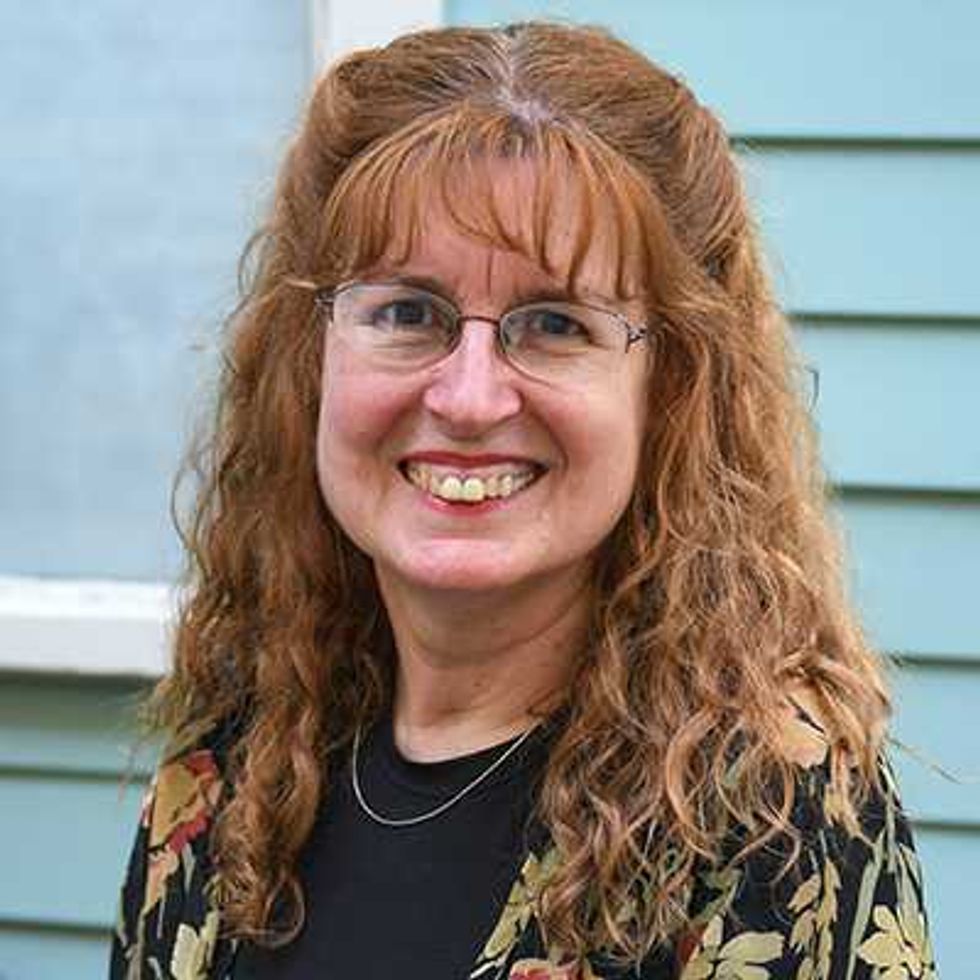
Democratic Nominee for Selectman
Candidate profile:
I have lived and worked in Kent for 35 years. I’ve served two years as selectman. I’ve worked as a journalist covering the town’s issues, as well as a faculty member at South Kent School. I was a Kent volunteer firefighter and KVFD emergency member for 21 years. I’ve also served on many non-profit boards, including the Kent Historical Society. My BS in Journalism degree is from Ohio University. I currently work as the Community Engagement Coordinator at Brooker Memorial in Torrington.
Why are you running for selectman?
As an incumbent selectman, I want to continue the progress that’s been made in the last two years. I have proven myself to be someone who researches issues and comes to meetings prepared to fully discuss the topics. I ask a lot of questions, so that townspeople can learn more about the issues facing the town. In many cases, I had a wealth of background or historical knowledge from my many years of covering Kent as a reporter. I want to keep the momentum going so Kent continues to thrive.
What issues deserve the most attention?
The issues that deserve the most attention for the Kent Board of Selectmen are a focus on infrastructure completion, such as roads and bridges, improving the communication and cooperation with the emergency services, such as the Kent Volunteer Fire Department, and enhancing the town’s economy and well-being through establishing an Economic Development Commission. Improving the efficiency of town government is another focus that deserves effective policies and procedures in place.
How would you improve the town?
The selectmen will need to manage the capital projects so that those that have been funded will be completed in a timely fashion. Roads and bridges needing improvement must be identified and prioritized based on current conditions. The selectmen must work cooperatively with KVFD to assist managing the costs and strengthening volunteerism in the organization. The cultural and business community must be celebrated and supported through economic development.
Get to know your candidates ahead of the 2025 municipal election. In North Canaan, there are two candidates for first selectman and two candidates for selectman vying for a seat on the town board. Below, each candidate offered information about themselves and their goals for the town.
Election Day is Nov. 4. Early voting begins Oct. 20.
North Canaan’s polling station will be at Town Hall, 100 Pease Street. Voting tabulators will be used. Absentee ballots are available from the Town Clerk. Absentee ballots can be placed in the ballot box outside Town Hall and will be counted at the polls.
Selectmen in North Canaan are elected to two-year terms. They are seated on the board one week after election day. The budgeted annual salary of the first selectman is $24,000 and the annual salary of the other two selectmen is $6,500 each.
The candidate for first selectman that receives the most votes will become first selectman through 2027. The remaining first selectman candidate then drops into the pool with the candidates for selectman and the top two vote getters will become selectmen through 2027 (subject to state law on minority representation).
At the heart of Connecticut’s municipal governance schema is the quintessentially New England selectboard, composed of the first selectman who administers day-to-day governance in town, and is assisted by two other selectmen. The Board of Selectmen is responsible for appointing various positions and roles in town commissions and for hiring and firing staff, as well as initiating and instituting town ordinances via Connecticut’s municipal democratic format, the Town Meeting. All selectmen in the Northwest Corner are allocated salaries from the town budget.
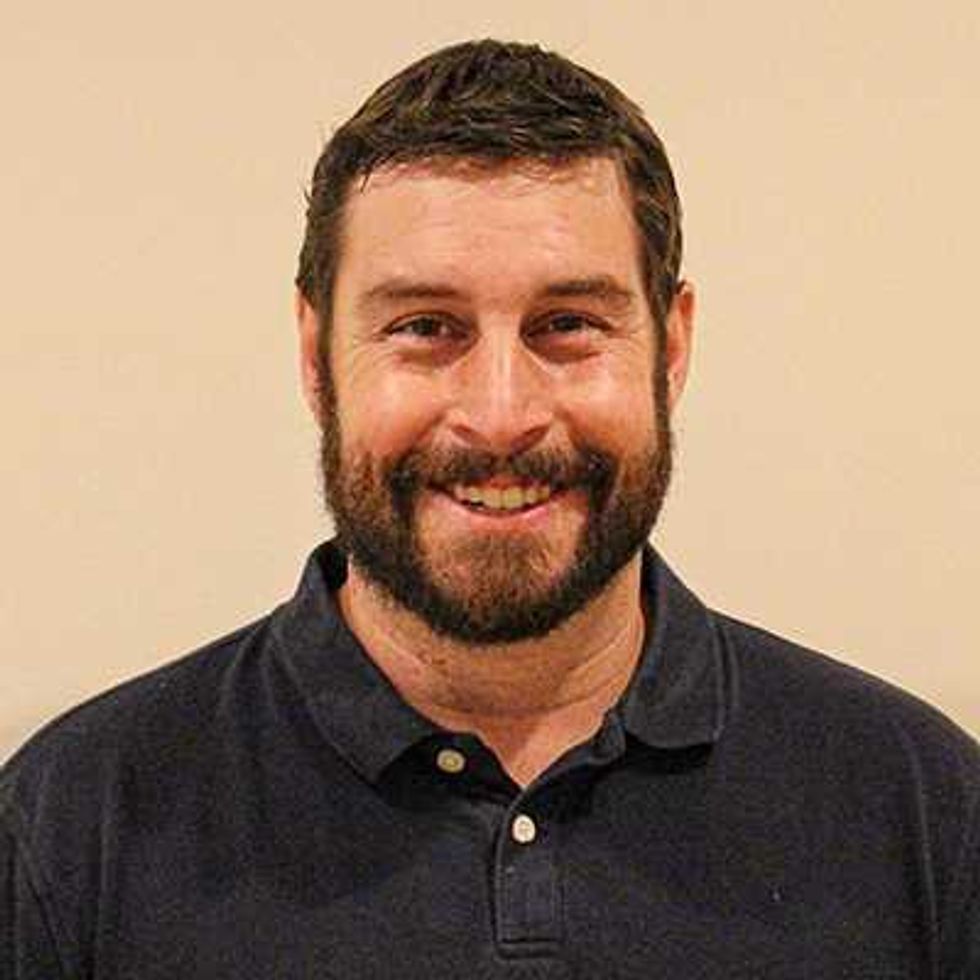
Democratic Nominee for First Selectman
Candidate profile:
My family has been blue collar in North Canaan for generations. I know hard work. I started mowing lawns at 12, now I run the family excavation business my grandfather built. My wife Kim and I are proud to be raising our growing family here. I’m not a politician, I’m a tradesman and a neighbor who stepped up because I care about this town and wanted to be part of the process. For me it has never been about a party label, it has only been about what matters for residents of North Canaan.
Why are you running for first selectman?
We deserve better. Running a business has taught me something simple: treat people right, be straight with them and work together to achieve our common goals. This is about neighbors helping neighbors and always listening to the taxpayers. I want to work with business owners on their needs and how we can support new businesses that choose North Canaan. Small changes can make a big difference. North Canaan should be a place where you can live and support your family without breaking the bank.
What issues deserve the most attention?
Let’s focus on common sense and community. We have millions in the bank that can earn interest in state programs safely to lower taxes and maintain liquidity. Wastefully spending $10,000/month for interim staff and ballooning legal bills. Locks being changed and threats to a 31-year public servant without due process. Putting a dog park next to a playground without discussion or approval. We need open government, financial responsibility and leaders who work together instead of playing games.
How would you improve the town?
The key to serving North Canaan is communication and teamwork. Elected officials work for you, the taxpayers, and you deserve to know the details and be involved in decisions with total transparency. Selectmen need to work together with our town boards and residents to make decisions that benefit the town, your voice should be heard. We need to be smart with money, lower taxes and invest where we can and go after grants.
Let’s support children and families. Let’s work together, then act.
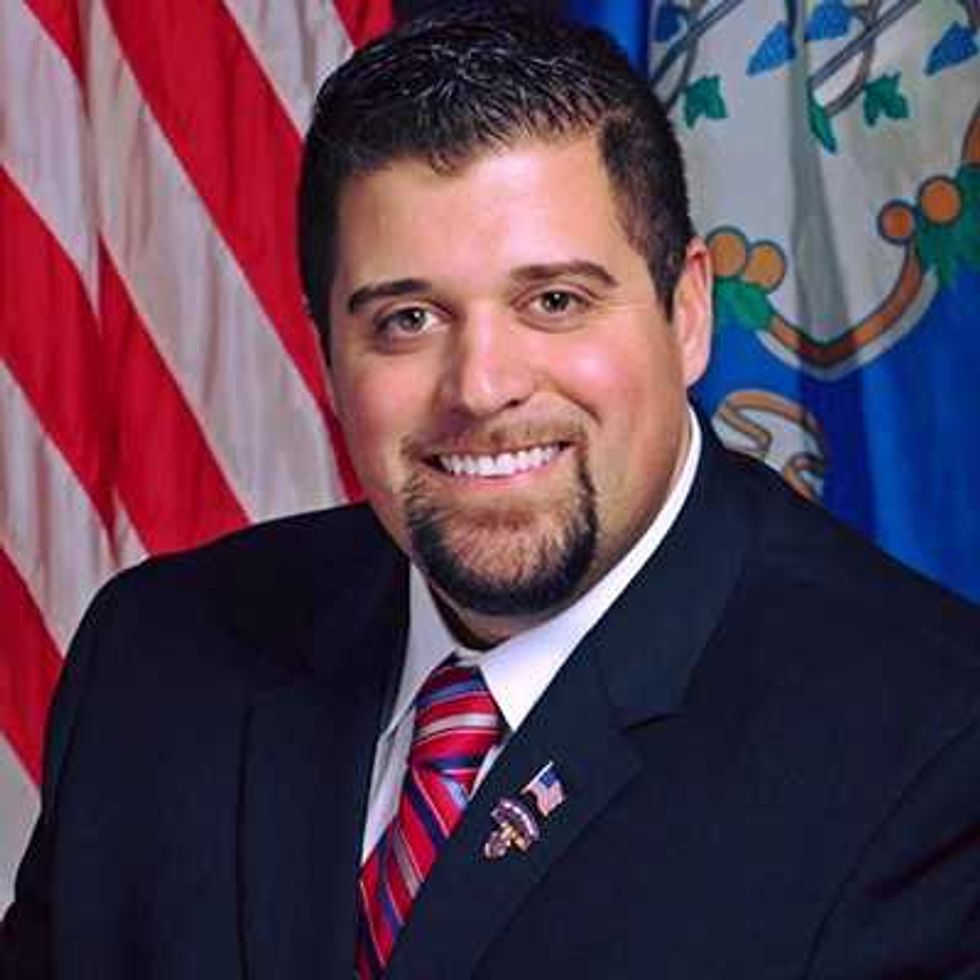
Republican Nominee for First Selectman
Candidate profile:
My family and I are proud to call North Canaan home for six generations; along with my beautiful wife, Meagan, and our precious baby girl, Saylor Rose. I have dedicated my life to service. No matter the capacity, no matter the role, I have never given up on the challenges that we face. My professional experience as a health care administrator and non-profit executive, along with my formal MPA/MHA education, have best enabled me to fully understand and execute the demands of a First Selectman.
Why are you running for first selectman?
We have accomplished so much in just our first two years together. We have fully modernized rural government, expanded our communications, increased departmental efficiencies, and drastically decreased frivolous expenses. We’ve saved over $250K in ancillary costs, while growing our General Fund into the millions. Melissa Pinardi-Brown and I are running to further build on this progress and to ensure that North Canaan keeps heading in a forward direction. Visit www.brianohler.com for more info.
What issues deserve the most attention?
Since making the foundational changes that were needed, the groundwork is now set to continue making noticeable strides when it comes to our economic and financial viability. We must continue to tighten our spending belt and expand our tax base through sensible development; which will enable us to further reduce the mill rate, creating much needed relief to taxpayers. Families and businesses can thrive here, as we champion what is possible and what can happen with a truly responsible government.
How would you improve the town?
Our dedicated team will continue to collaborate with residents and businesses, to ensure that we have developed a fully comprehensive plan for economic development, workforce/affordable housing, infrastructure enhancement, and area conservation. This plan and vision will then be executed in a manner that is truly guided by our town’s principles and our collective drive to go from concept, to paper, to shovel-ready, to full realization.
This forward-thinking endeavor is possible and will happen.

Unaffiliated Candidate for Selectman
Candidate profile:
I was born and raised in Canaan, attended North Canaan Elementary School and HVRHS. I am married to Katina Sebben and we have two children, Sabrina and Tyler, who also attended those schools and currently live in Canaan. My father was the local barber for 58 years —and he and his sisters and brothers were raised in Canaan. For 46 years I owned a lawn service and currently work at Housatonic Railroad. Me and my family are committed and dedicated to Canaan and its residents.
Why are you running for selectman?
I believe everyone needs to have a voice in the town and its government. I want to be sure that all residents can voice their opinions and concerns. I believe that I have the ability to bring residents together and to reach out to other state and congressional leaders to bring money, resources and ideas to Canaan to better serve our community.
What issues deserve the most attention?
The mill rate — we need to determine why the mill rate continues to be higher than surrounding towns. We should convene meetings with elected officials, board of education. and other citizens who can delve into this matter and address the rising costs to determine if we can cut expenses. All of the town equipment, buildings, computers, should be on a 5-year plan. We should review possibly subcontracting town road maintenance for plowing and mowing to see how to save taxpayers’ money.
How would you improve the town?
I would have regular meetings with the business community and residents to learn how we can work together to move Canaan forward and to hear their ideas and opinions. I would have an open-door policy. We need more communication and understanding of the issues and listening to all sides.I would evaluate all non-elected employees and their job descriptions to determine what changes should be made, if any, so that together we can move forward and be proactive to our residents.
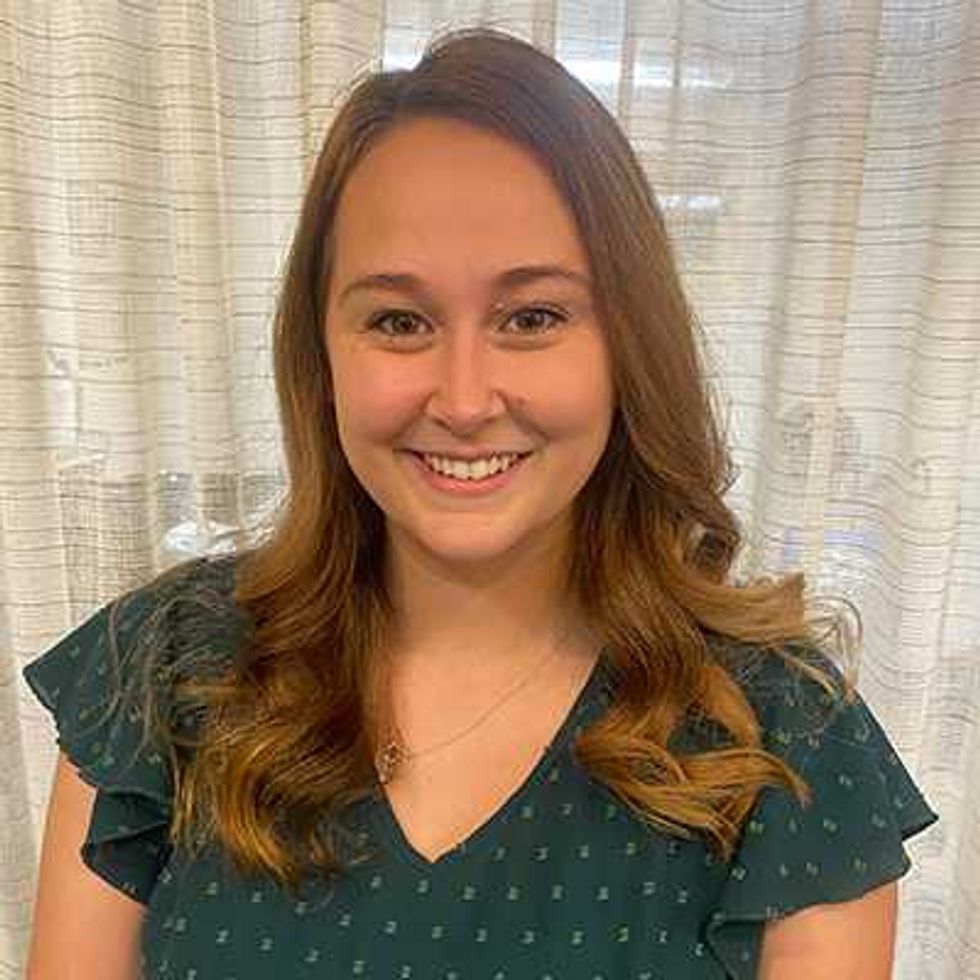
Republican Nominee for Selectman
Candidate profile:
I moved to Canaan in 2013 to spend the summer working at Lone Oak Campsites when I met my husband, Cooper Brown. I fell in love with Canaan’s small town feel and family-like community. Since moving here I have felt so embraced by our town. I have 2 small businesses, and have recently joined the Recreation Commission. As a home owner, business owner and parent I feel I can relate to everyone in our community in someway. I am so looking forward to serving the town who has been so welcoming to me.
Why are you running for selectman?
Six years ago I started to attend zoning and selectman meetings after having unpleasant experiences with different departments when attempting to purchase a building for my business. I attended meetings hoping to see positive changes in the way these departments were running. In the last couple years I’ve definitely noticed improvements. I would love to become more involved and help continue this progress. Everyone should have the same opportunities to start and grow their business in our town.
What issues deserve the most attention?
I feel that our current board has done a great job trying to keep our budget in check this past year. I would love to continue this work to help bring our taxes down. As a homeowner and business owner I fully understand the burden of a higher tax rate and look forward to exploring ways to continue to stay within budget. As a mother I also want to see the schools appropriately funded, continuing to offer our children the safest and best possible education.
How would you improve the town?
Being behind the chair in the salon, I get to hear from a lot of different people who live in our town. They are always so open about things they would like to see happen as well as items that could use some attention. Public safety, the success of our schools, and overall affordability are the main concerns I would like to focus on. Brian Ohler has already done so much in just two years, and I know that together we will accomplish even more for the people of North Canaan.